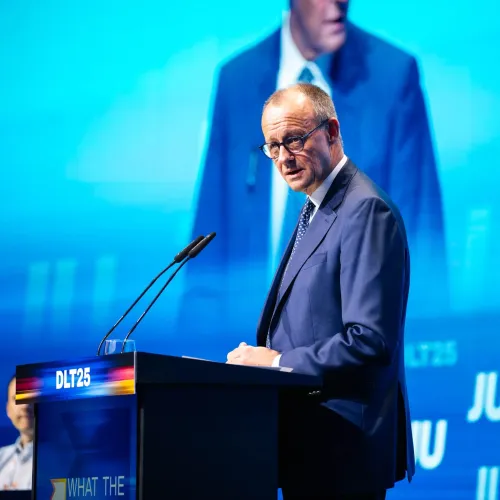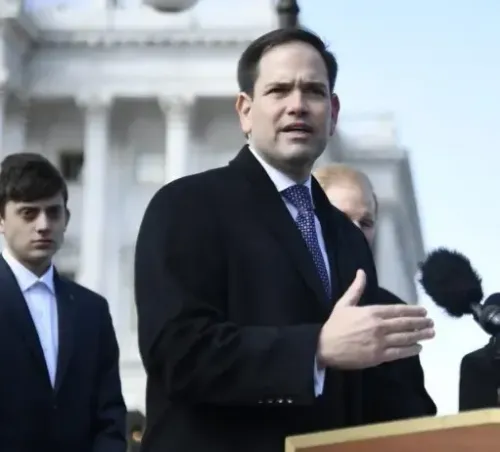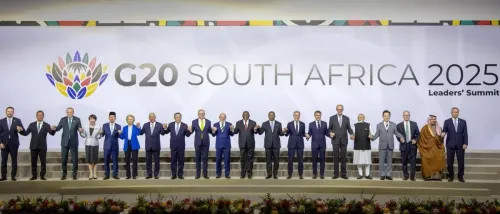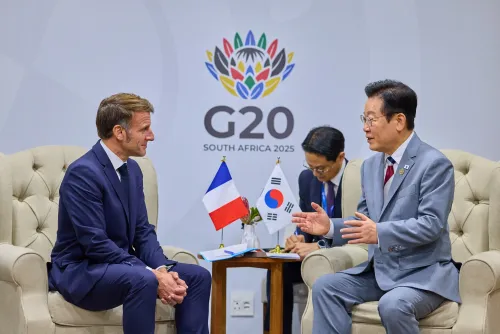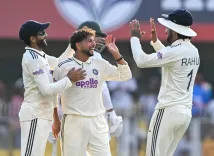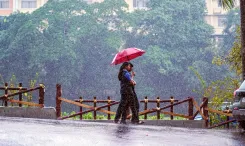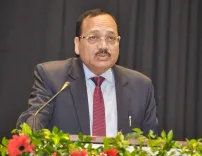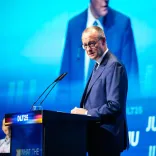Is a Putin-Zelensky Meeting Likely in the Near Future?

Synopsis
Key Takeaways
- Salvo highlights the low likelihood of a Putin-Zelensky meeting.
- Significant differences exist in security perspectives between Europe and the U.S.
- Russia's maximalist demands are a major impediment to peace talks.
- The U.S. role remains uncertain in the context of negotiations.
- Potential U.S. sanctions on India and China could impact global relations.
Washington, Aug 20 (NationPress) David Salvo, the Managing Director of the Alliance for Securing Democracy at German Marshall Fund and a former senior policy advisor at the US State Department, asserts that the likelihood of a meeting between Russian President Vladimir Putin and Ukrainian President Volodymyr Zelensky is "extremely low". This statement comes despite the announcement from Washington regarding the initiation of "arrangements for a meeting" between the two leaders. The White House indicated on Tuesday that the Russian leader has consented to this significant engagement.
In an exclusive conversation with IANS, Salvo expressed that recent meetings involving Trump and European leaders presented "pleasant optics", but were lacking in substantive outcomes. He noted that there remains a "massive gap" between the perspectives of European and American officials regarding security guarantees for Ukraine.
Salvo stated, "Despite what the White House claims and anticipates, I see the chances of a meeting between Presidents Putin and Zelensky occurring soon as extremely low. Putin does not recognize Zelensky as the legitimate leader of Ukraine, and I find it hard to believe he would engage unless he is certain that Zelensky will concede to nearly all of Russia’s demands. Russia will demand preliminary discussions at lower levels between Russian and Ukrainian representatives before any agreement for a meeting between Putin and Zelensky is reached," Salvo conveyed to IANS.
On Monday, European leaders and President Zelensky convened with the US President at the White House, following his encounter with Putin in Alaska last week. The meeting included prominent figures such as UK Prime Minister Keir Starmer, French President Emmanuel Macron, Italian Prime Minister Giorgia Meloni, European Commission President Ursula von der Leyen, German Chancellor Friedrich Merz, Finnish President Alexander Stubb, and NATO Secretary-General Mark Rutte.
Salvo remarked, "The meeting with European leaders and President Trump showcased nice visuals, but lacked substantial content. There remains a significant divide between the European and Ukrainian leaders' expectations for security guarantees and those of the Trump administration. Differences persist regarding the sequence of events—whether a ceasefire should precede a comprehensive peace agreement or if both should occur simultaneously. If the Europeans visited Washington aiming to sway Trump to abandon his previous agreement with President Putin from Alaska, they largely fell short," according to Salvo.
Following his discussions with Zelensky and European leaders, Trump declared he is orchestrating a meeting between Zelensky and Putin in an attempt to resolve the ongoing conflict that has resulted in the deaths of numerous civilians and military personnel.
After the meeting, Trump communicated with President Putin to explore the possibility of a trilateral discussion involving Zelensky, Putin, and himself to deliberate on peace negotiations.
Nevertheless, Salvo underscored that envisioning Moscow easing its "maximalist position" regarding the exclusion of NATO troops from Ukraine post-settlement is "extremely difficult".
He elaborated, "This will undoubtedly hinder the prospect of a swift resolution to the Ukrainian conflict, which Russia itself seems to resist. Russia is inclined to continue fighting, believing it holds the military upper hand to seize additional territory and undermine President Zelensky before negotiations commence. Ukraine will find it challenging to finalize any peace agreement that does not include clear security guarantees. The unpredictable factor remains the United States. Will it abandon Ukraine and pressure it to accept Russia’s maximalist demands? Trump has been ambiguous regarding the U.S. role, aside from stating he won’t commit American troops on the ground," he articulated during the interview.
Reports suggest that Moscow has proposed that Kyiv should "fully withdraw from eastern Donetsk and Luhansk oblasts" in exchange for a Russian assurance to maintain the frontlines in the southern regions of Zaporizhzhia and Kherson.
Salvo concluded, "I believe Kyiv might consider a land exchange, provided they do not have to legally acknowledge Russian control over Ukrainian territory and that credible security guarantees are explicitly defined in a legally binding manner—essentially akin to an Article 5 arrangement with clear U.S. involvement. Without that, Kyiv will find it exceedingly difficult to agree to a land swap."
Furthermore, the former senior policy advisor emphasized that he anticipates the ongoing threat of secondary U.S. sanctions on India and China.
He commented, "However, I do not think the administration is particularly keen on enforcing them, and it is unlikely to be a major topic of discussion. Yet, in Congress, I would expect continued bipartisan support for pursuing actions against those who enable Russia."

